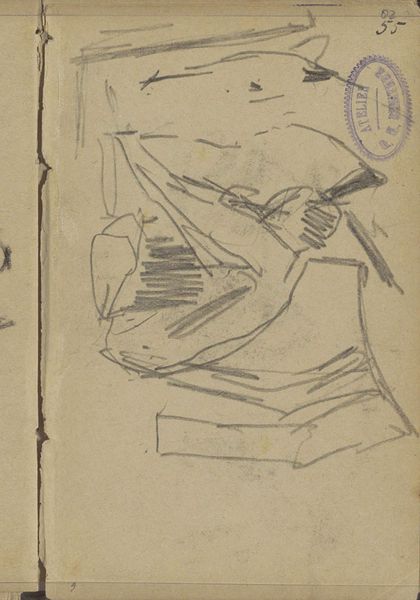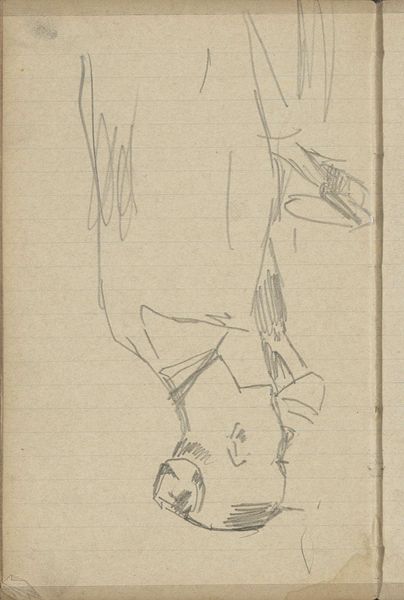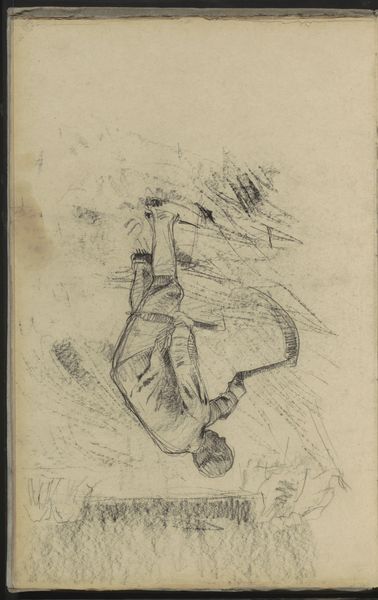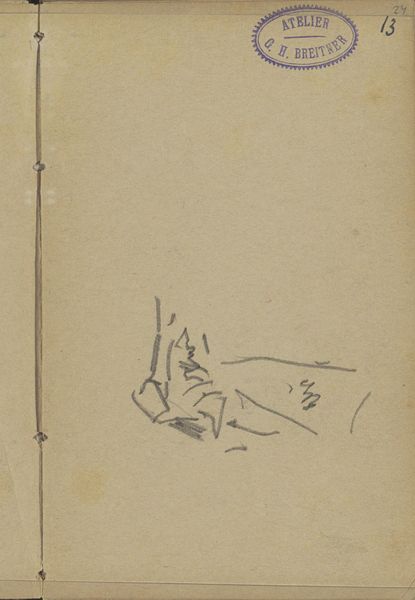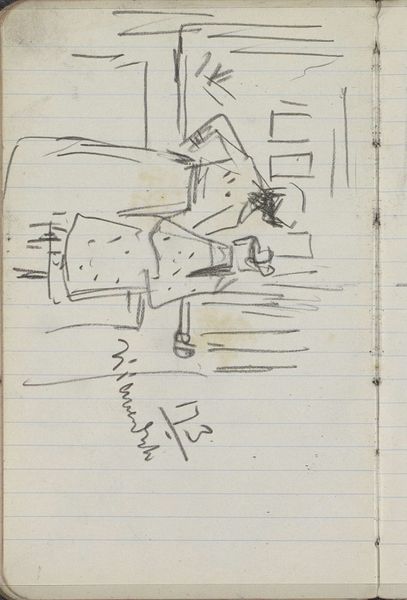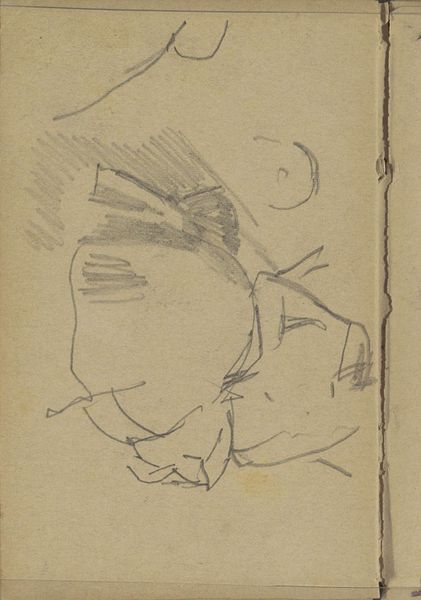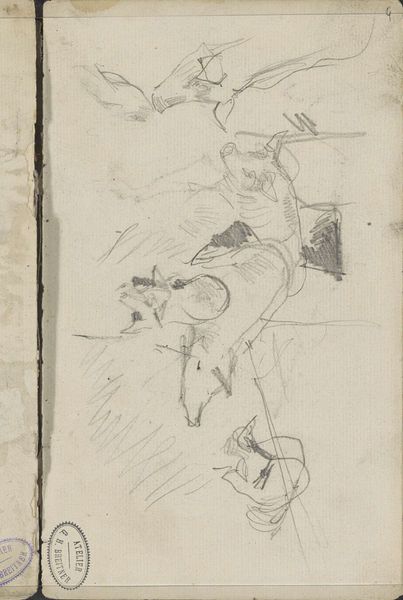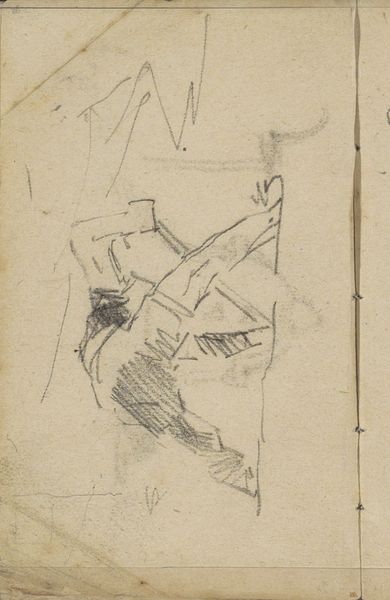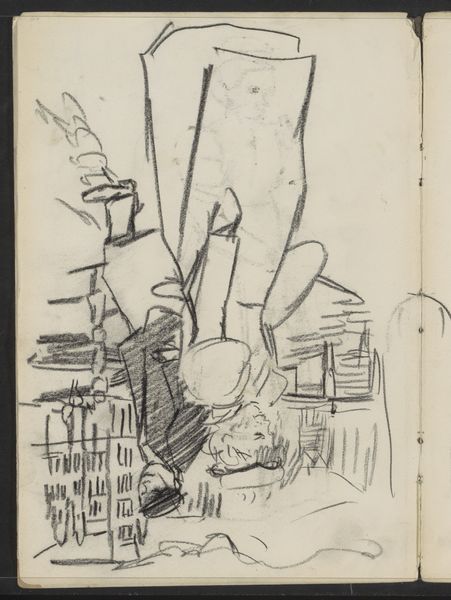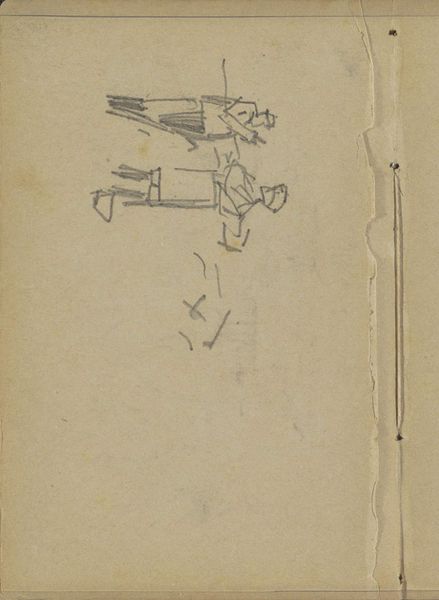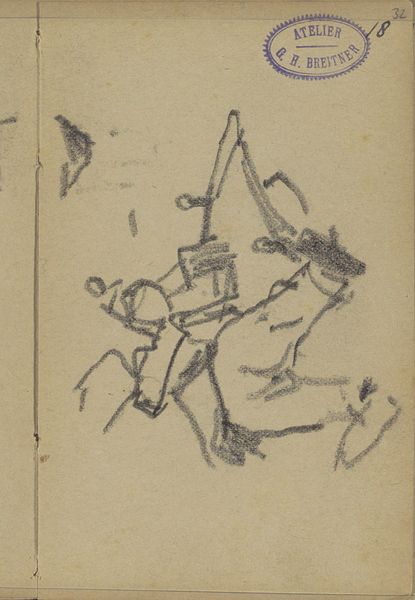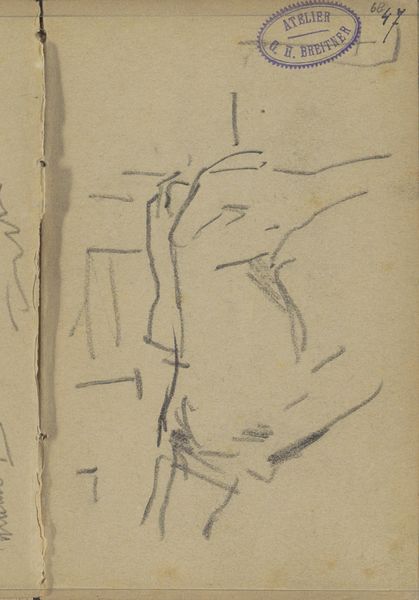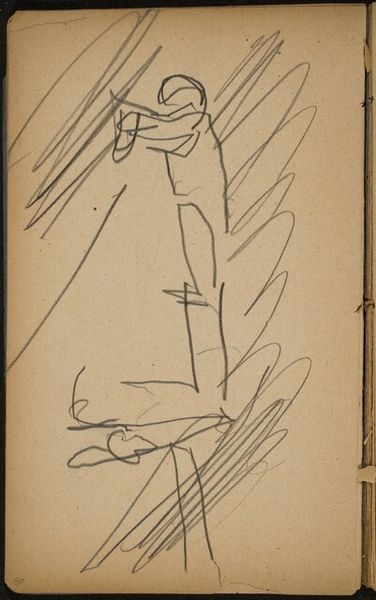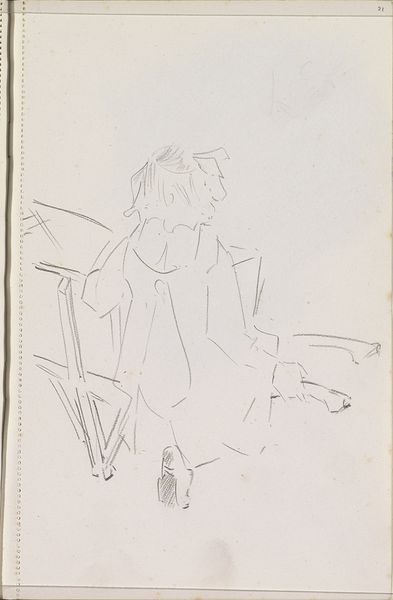
drawing, paper, pencil
#
portrait
#
drawing
#
amateur sketch
#
toned paper
#
light pencil work
#
impressionism
#
incomplete sketchy
#
figuration
#
paper
#
personal sketchbook
#
idea generation sketch
#
ink drawing experimentation
#
pen-ink sketch
#
pencil
#
sketchbook drawing
#
sketchbook art
#
realism
Copyright: Rijks Museum: Open Domain
Curator: Editor: Welcome to the Rijksmuseum. Here we have George Hendrik Breitner's "Ruiter," made between 1887 and 1891, using pencil on paper. It’s a very quick sketch. I find it really dynamic, but almost incomplete. What strikes you about it? Curator: The visible marks of the artist's hand, the rapid strokes... these are the crucial elements. It reveals Breitner's process of observing and translating movement into form, reflecting the burgeoning industrial era with its rapid pace of change and an almost mechanical need to record life. Think about the type of paper, its possible origins, its costs. The materiality gives clues about what Breitner thought about this drawing, was it made for artistic purposes, or just commercial ones? Editor: So you are saying that the material he used impacts our interpretation? Is it a class issue? Was he trying to capture modern life quickly, efficiently because of monetary issues? Curator: Absolutely. Breitner’s sketches offer a fascinating glimpse into the labor involved in art-making. These types of studies were vital for developing larger compositions to be sold later. What assumptions can we make about the consumption of those images? How might they perpetuate social hierarchies through the act of collecting? Editor: I never thought about sketches in that way before! It's interesting to think about this drawing less as a finished work of art, and more as a record of labor and a cog in the wheel of commercial consumption. Curator: Precisely! By examining the materials, the process, and the intended audience, we gain a much richer understanding of the social forces at play during its creation. Editor: I see it now, thanks! I understand much better that an artwork has a material existence that intertwines with social history. Curator: Indeed! Viewing art through a material lens allows us to question and unpack these power dynamics in a meaningful way.
Comments
No comments
Be the first to comment and join the conversation on the ultimate creative platform.
